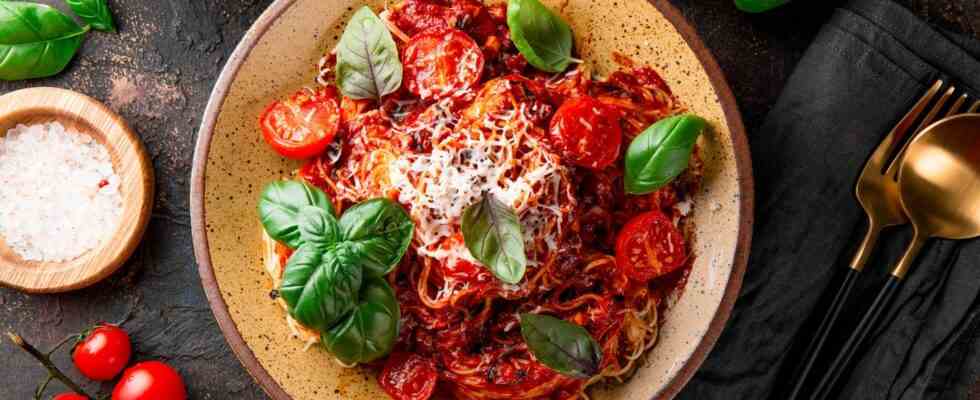Eco test
Tomato sauce? ugh! Mold, too much salt and tomatoes of unclear origin
Ökotest checked tomato sauce and found something unappetizing.
© Kseniya Romazanova / Getty Images
Tomato sauce over pasta is very popular, especially with small children. But mold toxins, too much salt and a lack of transparency spoil the taste. “Ökotest” can still recommend eleven sauces.
It’s every child’s favorite meal: spaghetti with tomato sauce. If things have to be done quickly, every parent likes to grab the ready-made tomato sauce from the jar. But what does not belong on the plate are mold toxins, too much salt, aromas and tomatoes with unclear origin. Ökotest therefore took a closer look at 21 tomato sauces. The result: Eleven cut “good” or “very good”, two rattled completely. The rest plays more in midfield.
Tomatoes are healthy and a good source of nutrients: vitamin C, potassium and fiber. Hardly any calories. It is all the more annoying when processed tomato products do not live up to their good reputation: Ökotest has found increased levels of mold toxins in the products from “Gut & Billig”, Alnatura, Dm and Rossmann, which devalue them. In the current test, Alnatura even exceeds the guideline value for tenuazonic acid (which could lead to organ damage) and almost doubles it. The testers punish the sauce and give it an “unsatisfactory” rating.

There is too much salt in 14 tomato sauces
Salt is also a problem in the sauces: the salt content varies between 0.01 (La Selva tomato sauce) and 1.28 grams (Maggi and Cucina Nobile) per 100 grams. In 14 sauces, the testers assessed increased salt content. Test winner among the sauces La Selva (2.22 euros per 400 g) is given top marks because no salt is added. In terms of taste, however, there is almost nothing to pass. The examiners found the Maggi Pomodoro Sauce to be the worst: too sweet, the smell of thyme too strong.
Many manufacturers were able to prove their supply chains in an exemplary manner. That tomatoes from Italy are in the jar is not always a matter of course. Processed tomato products often come from China. The big providers Barilla and Unilever (Knorr) are particularly disappointing when it comes to transparency. At least they try to prove the origin of the tomatoes right down to the field. Ökotest evaluates this behavior.



